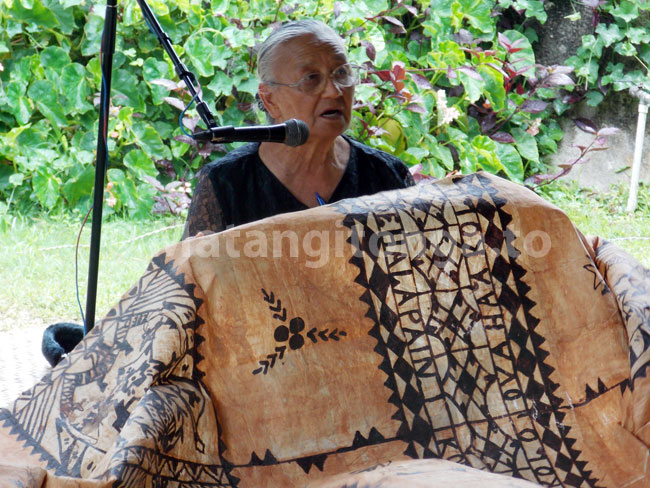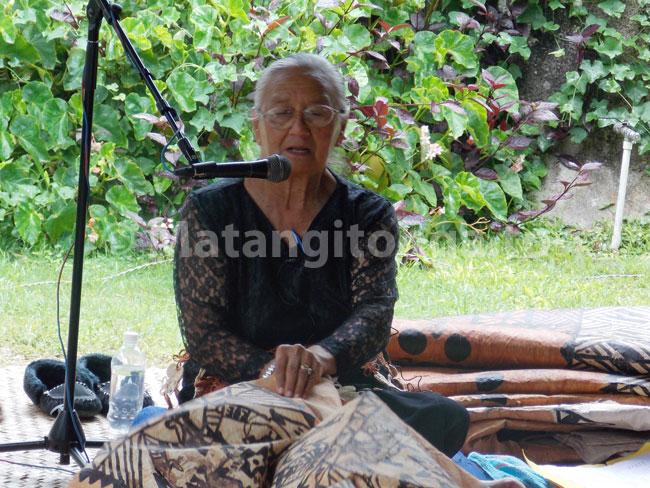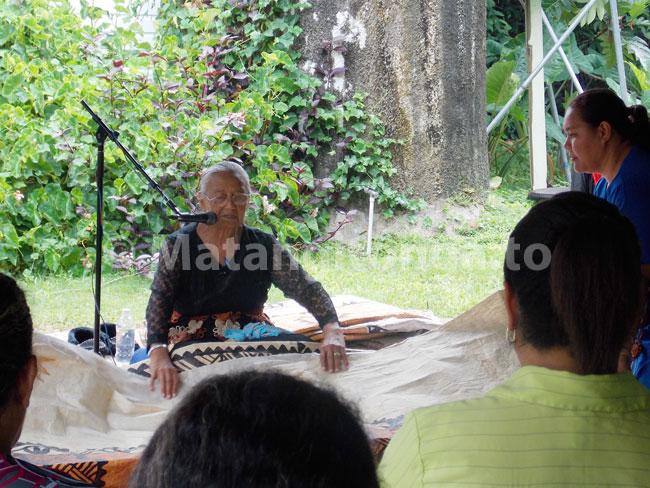
Tuna Fielakepa, demonstrates traditional tapa-folding techniques at Langafonua. Nuku'alofa, Tonga, 18 January 2012.
Photos by Finau Fonua
Tonga is losing the people who hold in-depth knowledge of traditional arts, and without them the techniques for preparing and presenting Koloa are largely forgotten, say Tongan women who took time last week to learn from a master of Tongan crafts.
A workshop aimed at reviving traditional methods of presenting Tongan mats (Koloa) was held on Friday 18 January at the National Council for Women of Tonga, also known as “Langafonua”.
The EU-funded workshop called “Introduction to Tongan Crafts” involved a practical tutorial by a traditional wares expert, Tuna Fielakepa, who demonstrated the correct techniques of folding and presenting Koloa for various occasions, such as weddings, funerals, birthdays and royal offerings.
Present at the workshop were an audience of mainly elderly women armed with notebooks and eager to learn from her wisdom.
“Presenting Koloa is complex because the mats need to be folded differently for a specific occasion,” said Naomi Hopoate, the secretary general of Langafonua.
The workshop was important as it taught Tongans an art that is largely forgotten, she said. “It’s difficult to get the right teachings now and we are losing those who hold this knowledge. I am taking notes and I know I’m lucky to learn first-hand from Tuna Fielakepa.”
Attending the workshop, Siola'a 'Aho said, “I now have the confidence that I can prepare and fold and present the right mats and tapa to suit the occasion. We used to run around to find an authority whenever events happened, because it is sensitive and there is protocol. This will help me with my duties and obligations, not only for my family, but for my church and community”.
Naomi said the workshop was one of several granted to Langafonua. Other workshops offered will teach basic bookkeeping for handicraft artists, biosecurity issues, leadership, corporate governance and voter’s education.
Langafonua is a non-profit and non-government organisation established by Queen Salote Tupou III in 1953, it was setup as a place to learn traditional crafts and to enhance the livelihood of Tongan women






